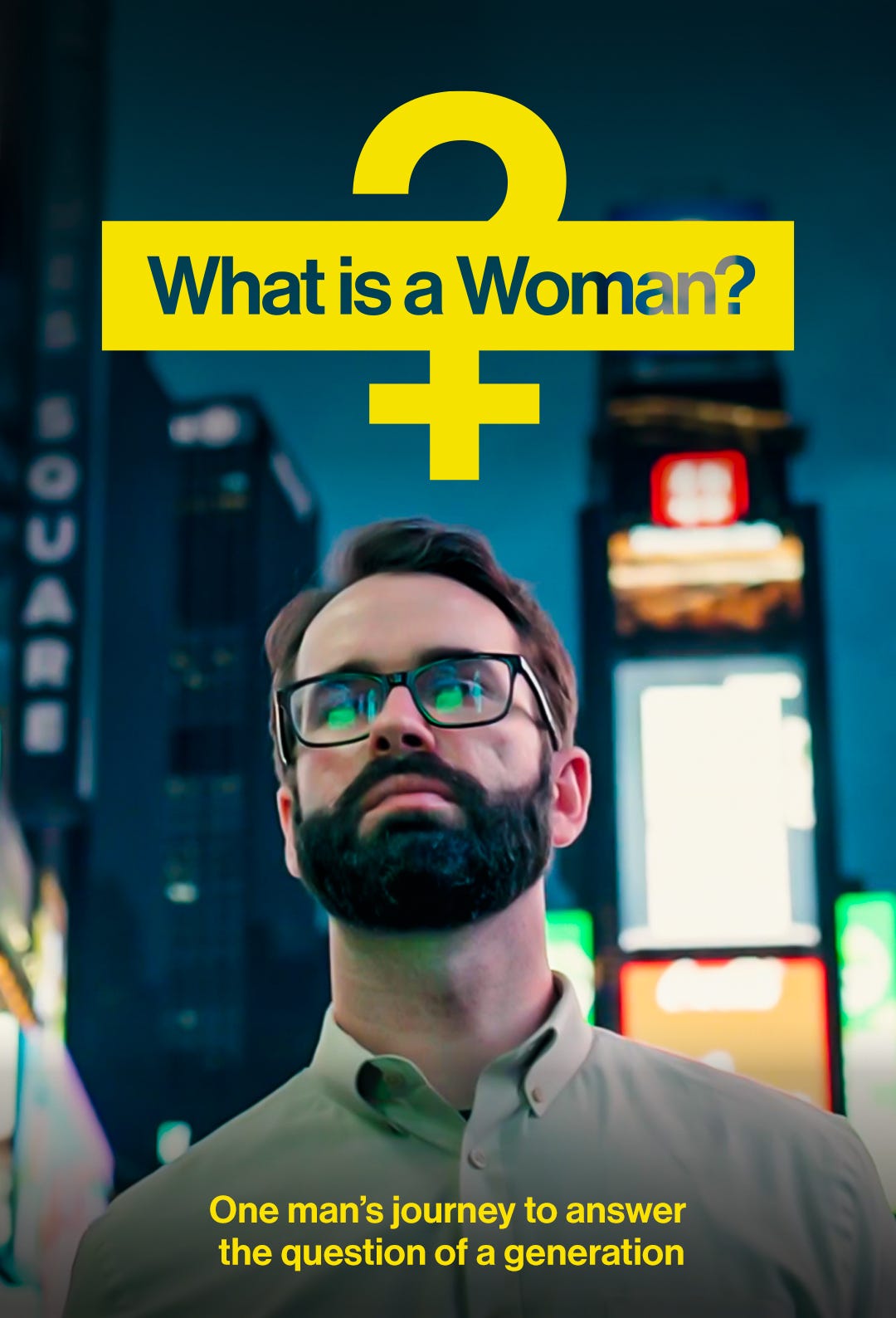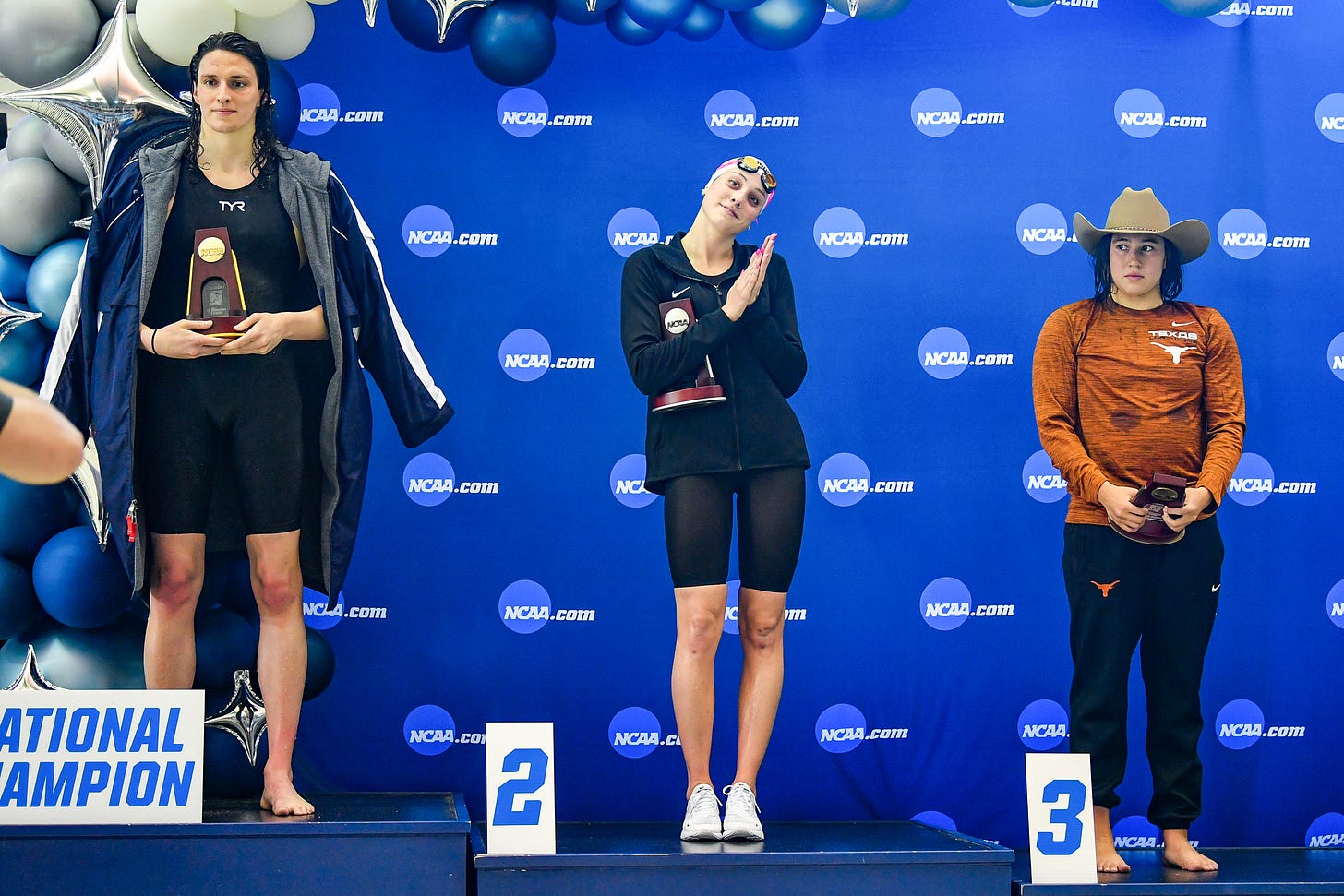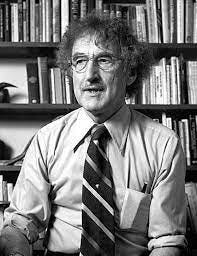GeroDoc Reviews Movies: "What is a Woman"
4/5 stars. Great use of Socratic interviewing technique, good extra perspective on "gender ideology." No, it's not "transphobic" nor does it "promote hate." What it does promote is *skepticism*.
Just the other day, the Daily Wire’s documentary, “What is a Woman” was released on Twitter, for free, for all to see.
I hadn’t seen it yet.
I had been warned about it, that it’s transphobic and bigoted. Generally speaking - I got the message that even watching it was a transphobic, bigoted, possibly even hateful act.
So, of course I was curious, and had to watch it!
As I was finishing it this morning, I saw this:
Based on the vanishingly small number of reviews by actual movie critics (reflected on the left-hand side, above), it’s fair to say that this message has also been received by mainstream movie critics employed by corporate media. They’ve been told to stay away, and largely - have.
So, I felt it was my duty to submit my own movie review. Here it is.
Part I - Questioning
As I watched - the movie appears to be broken up, loosely, into three parts. Part I is a series of interviews by the bearded, middle-aged hipster-looking conservative Daily Wire star, Matt Walsh, with a variety of credentialed experts.
In getting these interviews, one issue that needs to be pointed out is that Matt Walsh employed the controversial journalistic technique of deceptive interviewing1 with subjects, by creating a Twitter page and website for a fictious group called the “Gender Unity Project,” and representing himself as from this group when approaching these subjects. Deceptive interviewing is a controversial technique, to be sure - but given the honest concerns Matt has about real, legitimate misconduct going on in the “gender affirming care” industry, particularly as it regards children, he appears to have a valid justification for using it.
The technique ended up bearing fruit - the first third of the movie chronicles these interviews, with the most notable being people like Dr. Michelle Forcier, MD, MPH, clinical educator and professor of pediatrics at Brown University, as well as University of Tennessee Psychology Professor, Patrick Grzanka, Ph.D., and pleasantly goofy ‘nonbinary’ Nashville therapist, Gert Comfrey, MTS, LMFT.
Walsh even nets a US Congressman, representative of the newly-redrawn 39th congressional district of California, Mark Takano.
The thing most notable about Walsh is his demeanor and stance in the interviews - in a variety of ways, Walsh employs use of the Socratic technique, AKA ‘Socratic questioning’ when interviewing these subjects.
Socratic questioning is a method of inquiry in which the questioner asks a series of questions in order to help the respondent clarify their own thinking. Walsh uses this method to great effect, and in many ways, his use of Socratic questioning is very faithful to the classic tradition.
For example, in his interview with Gert Comfrey (the goofy therapist), Walsh asks a series of questions about the definition of gender, the role of biology in gender identity, and the relationship between gender and sex. As the interview progresses - the inconsistency and insubstantiality of the answers she provides become readily apparent, yet the calm, friendly tone of the interview never wavers.

It’s very, very effective.
His interviews with other subjects get more heated, particularly those with Dr. Forcier, Congressman Takano, and in particular, Tennessee psychologist Dr. Grzanka.
At a certain point in the interviews of these two, they become extremely uncomfortable with where the answers some of the question seem to lead - such as when Walsh asks Takano about the controversial subject of forcing biological women to share changing rooms with people who have penises (Takano ends the interview at that point, very abruptly), or when Dr. Forcier is asked whether Lupron, a drug used in “gender affirming” medicine, also has a dual-use as a chemical castration agent for sex offenders.
Hands down - one of the moments where Walsh’s use of this technique is the most devastatingly effective, and produces the most tension and aggression, is with the aforementioned Tennessee psychologist Dr. Grzanka.

Walsh stays calm, and at times expresses open confusion with the psychologist’s non-answers to the his repeated question “what is a woman.” To this, psychologist responds by at one point by accusing Walsh of being “transphobic” in asking. As the non-answer-answers pile up, Matt Walsh asks the psychologist, deadpan: “do you know what a circular definition is?”
It’s pure gold.
Part II - Questioning Skeptics & Critics of Gender Ideology.
This makes up, generally speaking, the middle third of the movie. Some of the more notable interviewees include, well, basically victims & sufferers - those who regret transitioning & now campaign against it, like Scott Newgent, who underwent female-to-male medical transition (hormones and surgery) at age 42 and now campaigns against the procedure through his nonprofit, TreVoices.
Walsh also briefly interviews a father who is currently out on bail, awaiting charges (and is liable for jail time), for publicly referring to his child by their non-preferred pronoun.2
He interviews a female student track & field athlete, who feels strongly she was cheated out of a variety of athletic honors due to being forced to compete against biological males, most famously, of late:
There’s also Dr. Miriam Grossman, adolescent and child psychiatrist, below, who provides a very informative alternative, critical take on “gender medicine” such as the ones provided by Dr. Forcier & others interviewed by Walsh.

The interview with Grossman, as it progresses, takes on a critical and dark tone - she traces the history of the so-called “gender ideology” movement back to Alfred Kinsey (famously known for the “Kinsey Scale” which measures sexual orientation on a spectrum, as opposed to categorically) and a lesser-known psychologist by the name of John Money, who apparently largely defined the concepts of gender identity and gender roles as they are popularly used today.
Hands down, one of the highlights of the movie is Walsh travelling to Nairobi, where he is hosted by, and interviews a Masaai Tribe about the nature of manhood and womenhood, and questions them (as best as he can) about their impressions of the ideas of transgenderism and gender identity.
The interview is funny, good-natured, and extremely enlightening, helping to expose how much of a (self-imposed) media bubble the Western world finds itself in regarding issues of gender theory and so-called “gender ideology.”
Matt simply presents, with questions, the increasingly-conventional wisdom as we understand it here regarding gender and sex, and the reactions of the Masaai tribesmen are priceless:

Part III - Matt Walsh “Comes Out”
There’s a dramatized, dream-sequence scene somewhere around the third of the movie where Walsh transitions into conservative, “theocratic fascist” activist and public speaker that we know best from his public, Daily Wire persona.
Some of the high points of the final third - he (Walsh) documents his writing of a children’s book, titled “Johnny The Walrus” - about a young boy who identifies as a walrus, which is clearly an allegory for gender transitioning in children.3
Walsh also campaigns at a school board meeting in Loudon County, Virginia, against a law that compels teachers and staff at schools to use gender pronouns that do not correspond with the biological sex of students (this has been the subject of lawsuits by teachers who allege this is compelled speech that violates their rights to religious liberty - and also offends their sense of ethics as educators and truth).
Regardless of whether you agree with Matt Walsh’s core views about all of this, or completely disagree - the final third of the movie is basically “red meat” for those predisposed to his viewpoints.
Conclusion
Despite the occasional moments of tension, Walsh's use of Socratic questioning in the first third or so of this movie is, honestly, generally respectful, fair-minded, and one of the most powerful aspects of the film.
He doesn’t interrupt his subjects, and allows them to express their own views, and at no point does he try to force them to agree with him. This results in many moments of unintentional humor, and powerfully does the job of exposing some serious shortcomings with the internal logic of the whole so-called “gender ideology” movement.
The middle and final thirds of the movie have their strengths, particularly in the ways that thoughtful, educated, critical voices of the “gender ideology” and “trans inclusivity” are aired (not something you see in mainstream media).
Truth be told, I came into watching this movie with some pretty established priors when it comes to transgenderism & “gender critical” ideological stuff, and none of them were really changed. Such as:
I believe that if someone insists on being referred to by a gender pronoun that doesn’t correspond to their biological sex (or even a “neopronoun”), I feel obligated to at least try and refer to them as they desire. I can’t promise I get it right all the time (because honestly, who says “zey” and “zir,” for example), but I’ll honestly try.
That being said, I’ve been asked at times (mostly at work) to include “preferred pronouns” in my email signature. I have always refused this for a variety of reasons: I’m not comfortable engaging in, or modelling performative sexuality, and I don’t want to encourage others to feel compelled to put out pronouns if they aren’t sure how they want to be referred to - I dislike compelled speech. Finally, I don’t care if someone “misgenders” me.
I have zero issues with a consenting adult taking hormones or other drugs, or otherwise electively and irreversibly altering their bodies however they like, be it with surgery, nose rings, or even elective amputation, particularly if I’m not forced to subsidize it.
My hard line in the sand is children - people not old enough to consent to sexual activity, to drinking, to driving, to being married, consenting to a lifelong, life-altering procedure like gender surgery seems to much.
I’ve seen some good documentaries in my time. Grizzly Man, Crumb, and Michael Moore’s groundbreaking Roger & Me are some personal top favorites that come to mind.
As far as documentaries go, “What is a Woman” is a smartly-produced, at times funny, engaging, and educational film.
I appreciate it because it brings a fresh perspective to what is one of the most controversial social issues of our time (apparently), the subject of gender surgeries, sex reassignment, use of “pronouns,” and particularly how it relates to children.
Is it in the top 10 documentaries I’ve ever seen? No - but I’d give it a solid 4/5 stars. Recommended.
In the context of news media, the term commonly used to describe an interview obtained under false pretenses is "deceptive journalism" or "deceptive interviewing." Deceptive journalism refers to a practice where journalists use misleading tactics to secure an interview or gather information from individuals. This can involve misrepresenting their identity, intentions, or affiliations in order to gain the trust and cooperation of the interviewee. The purpose of deceptive journalism can vary, ranging from exposing misconduct or gathering evidence to sensationalizing a story or manipulating the interviewee's responses for dramatic effect. It is worth noting that the ethics of deceptive journalism are a subject of debate within the field, as the practice raises questions about transparency, trust, and the responsibility of journalists to accurately represent themselves and their intentions to their sources.
Yes, you read that correctly. Canada has… issues.
This book, when it was released, caused an enormous amount of media controversy, despite the main character in the book, Johnny, ending up having his ‘walrussian’ identity fully affirmed by his parents and community. Amazon staffers were apparently “traumatized” by the content of the book, and Target subsequently pulled all of the books from their shelves after the media controversy took place.












I think the vast majority of people really don't care if an adult chooses to be transgender. I really don't think most people are hateful or transphobic, even on the opposing side of the pro trans ideology.
As you suggest, most are concerned about the wellbeing of children to whom this radical ideology is being marketed, (whether the activists admit that or not, it is marketed) and then extremely frustrated with being compelled to participate in the sexuality choices of others or to affirm this ideology or suffer consequences.
Another deconstructive ideology applied here to sex and gender is spreading fast in all the "west", part of our suicidal civilisation. Recently Spain has legalised sex change without parent's approval age 16, (age 14 with parental OK). By the way, for those who have not been in Spain in the past 10 years, Spain went from Franco to la Movida to post progressive in less than a generation resulting in a massive drop in fertility and a very high divorce rate). Most people would agree on protecting children. I would dare to say that it is beyond children as we see in the case of Spain, just try to define at which age are we a child? 14, 16, 18 24? 50% of "children "stay at their parent's place until age 30! Gender dysphoria has become a MASSIVE business and it only profits the medical profession. A society that generates existential anxiety, sells drugs to compensate, offers ZERO sacred vision, believes that humans are above nature, and above God, dares to tell me that Zelensky needs more money to fight the evil Russia when 75% of people on earth no longer wants to support the USA, etc.. sad world.